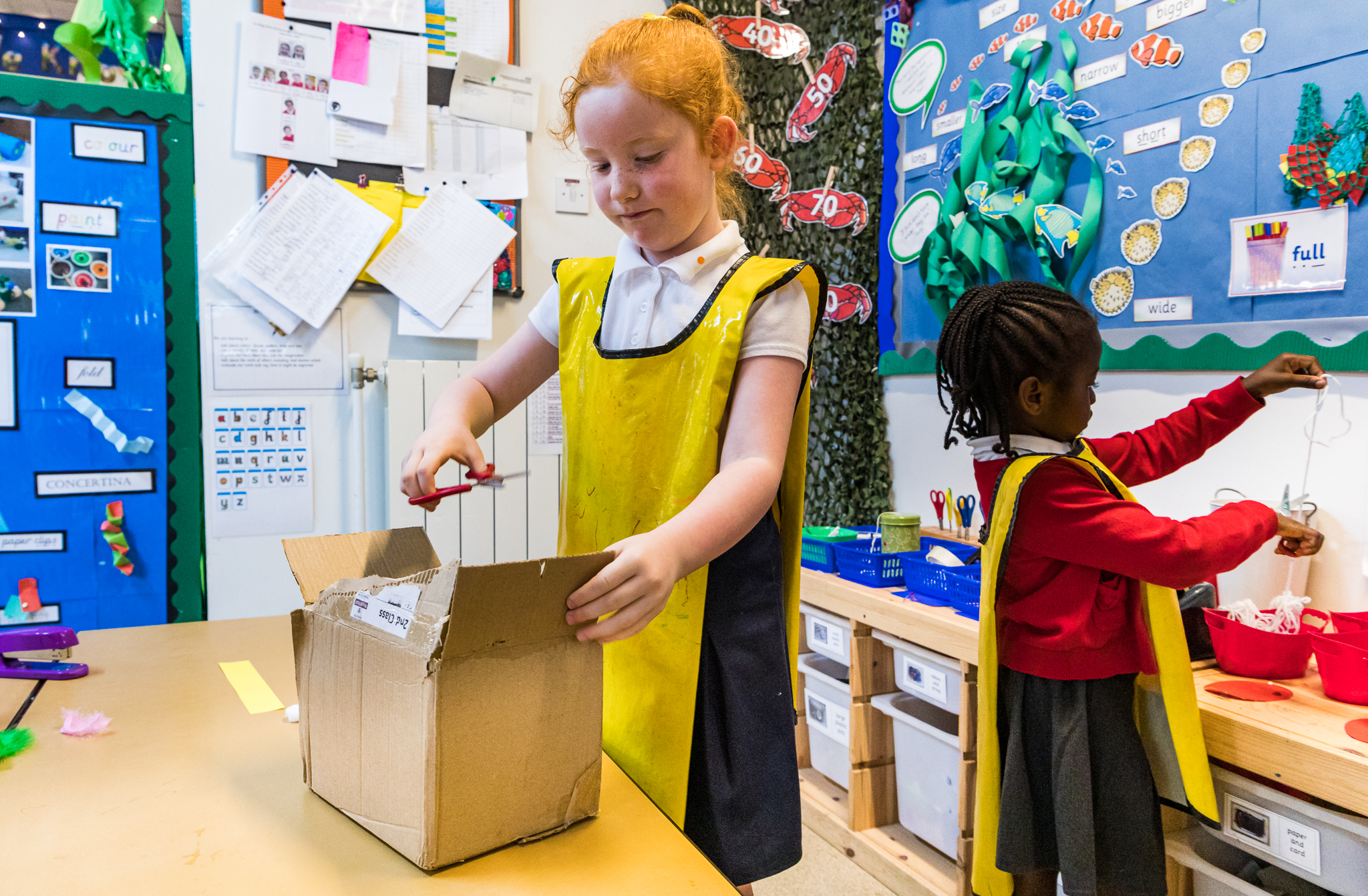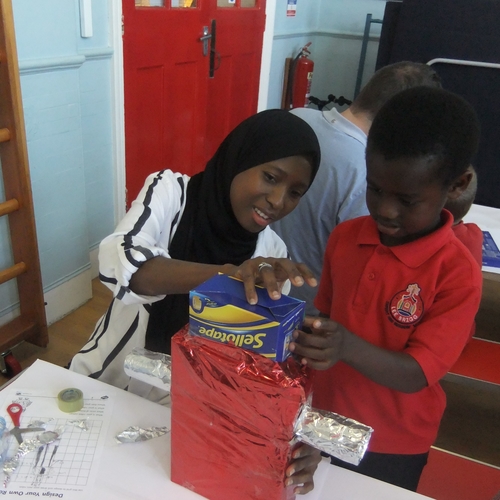Subject Leader : Miss Tate
At Lee Brigg Infants and Nursery School we aim to provide a high-quality DT education, which will engage, inspire and challenge pupils, equipping them with the knowledge and skills to experiment, invent and create their own products.
Design and Technology gives our children the opportunity to explore their own creativity and individuality. They learn about the process of designing, making and evaluating products and become more confident and thoughtful in each of these aspects as they progress through school.
Aims in teaching DT at Lee Brigg Infant & Nursery School:
We aim to:
- develop the creative, technical and practical expertise needed to perform everyday tasks confidently and to participate successfully in an increasingly technological world
- build up and apply their growing knowledge, understanding and skills in order to design and make high-quality products
- evaluate and test their ideas and products and the work of others
- understand about healthy eating and what makes a healthy meal.
How is the content / theme chosen?
Whenever possible, we teach through a themed approach, to enable children to embed learning and make connections, which leads to a greater depth of understanding within the subject. The content is therefore chosen to make effective links with key themes, reflect expectations in the National Curriculum programmes of study and EYFS framework and engage the children. The content may also be chosen based upon the needs or interests of specific cohorts or links to events which are taking place in the community or wider world.
How do we ensure progression of knowledge and skills?
At Lee Brigg Infant & Nursery School we have in place, for each subject area, a knowledge and skills progression document, which is used for planning, to ensure sequenced and appropriate content for specific year groups, as well as a build up of knowledge and skills.
Within these documents there are also opportunities for differentiation, in order to meet the needs of all learner.
How is the subject taught?
A two year, long term rolling programme maps out the coverage of the discrete teaching and learning opportunities for children to use and explore different skills and techniques. This provides them with a wide range of discrete art experiences during their time in Key Stage 1.
Within each discrete block of DT teaching, class teachers carefully plan the specific outcomes for their year group, based upon age appropriate knowledge and skills, as well as the needs of the cohort or individuals within it. Our teaching and learning opportunities ensure all children are introduced to and reminded of key vocabulary.
Questioning is used to check their understanding and prior knowledge, before new concepts or skills are introduced. Modelling is used by class teachers to clarify expectations, children are then given plentiful opportunities to consolidate, build upon and apply basic skills in order to produce a piece of work which showcases what they have learnt.
When children are learning about a subject through a discrete teaching sessions they are explicitly told that today they are going to be ‘designers and makers’ etc. They are then reminded of the key skills that they will learn, use and develop within that subject.
In DT these are:
We are learning to
- create designs and drawings to show our ideas
- use a variety of tools and materials
- use our imagination
- evaluate, change and adapt my ideas
- consider the purpose of my design
In addition to discrete teaching in this subject, opportunities for DT through additional projects and links with other subject areas, ensure that elements of the DT curriculum are accessed by children throughout the year.
DT is one of our key subject drivers in developing the ‘Challenge & Educate’ side of our school curriculum.
Through studying a range of people from the past and present, who have had an impact on the world of Design, as well as a range of countries and cultures, children learn about and are taught to challenge stereotypes connected to gender, wealth, disability and cultural background. They are educated that differences should be celebrated and are not a barrier to achievement.
Healthy eating is promoted through daily routines as well through specific activities during health weeks where children learning about food.
Teaching DT in EYFS
Planning and teaching in EYFS is similar to that in Key Stage 1. The children are expected to develop a specific set of skills and knowledge appropriate to their age. This is often beyond the expectations that are set out in the end of year Early Learning Goals, in order to prepare them for our year 1 curriculum.
As well as topic work and the discrete teaching of skills and knowledge, children in EYFS are given the opportunity to continually practise and embed their skills through the areas of provision set up in the indoor and outdoor learning environments.
How do we know that our children are making progress?
Ongoing assessments of the children’s knowledge and skills is observed by the class teacher. Misconceptions are addressed and next steps carefully planned. Children’s outcomes are compared to the subject specific skills and knowledge documents. At the end of a block of discrete teaching (or term) subject leaders gather an overview of children’s outcomes in each subject area. This is used to plan appropriate next steps for their future learning, as well as provide an overview of learning within a subject area cross the whole school.
How do we promote Communication & Language (including reading), Personal, Social and Emotional Development and Physical Health and Wellbeing?
Design and Technology allows our children to be creative, independent, learn new vocabulary, as well as demonstrate a sense of pride in their work. Positive relationships in school ensure that children get the opportunity to work collaboratively together on projects, as well as recognise how to sensitively respond to others when offering evaluations of their work.
Participation in DT activities develops physical skills including fine motor control and hand-eye co-ordination. It also has a positive effect on children’s well-being.
Through DT children are enabled to discover how inventions have shaped our history and contributed to the culture, creativity and wealth of our nation and the wider world.
Work on the DT area of cooking and nutrition promote our ethos of establishing good habits and routines to ensure good physical health both now and in the future.
What wider opportunities are provided for our children?
We regularly hold workshops and inspire days where children invite their parents and carers into school to teach them the skills that they have learnt.
Visitors to school such as ‘Discovery Kitchen’ support children’s knowledge of how to prepare and cook healthy meals.
Extra-curricular clubs throughout the year include arts and crafts as well as healthy eating club.




